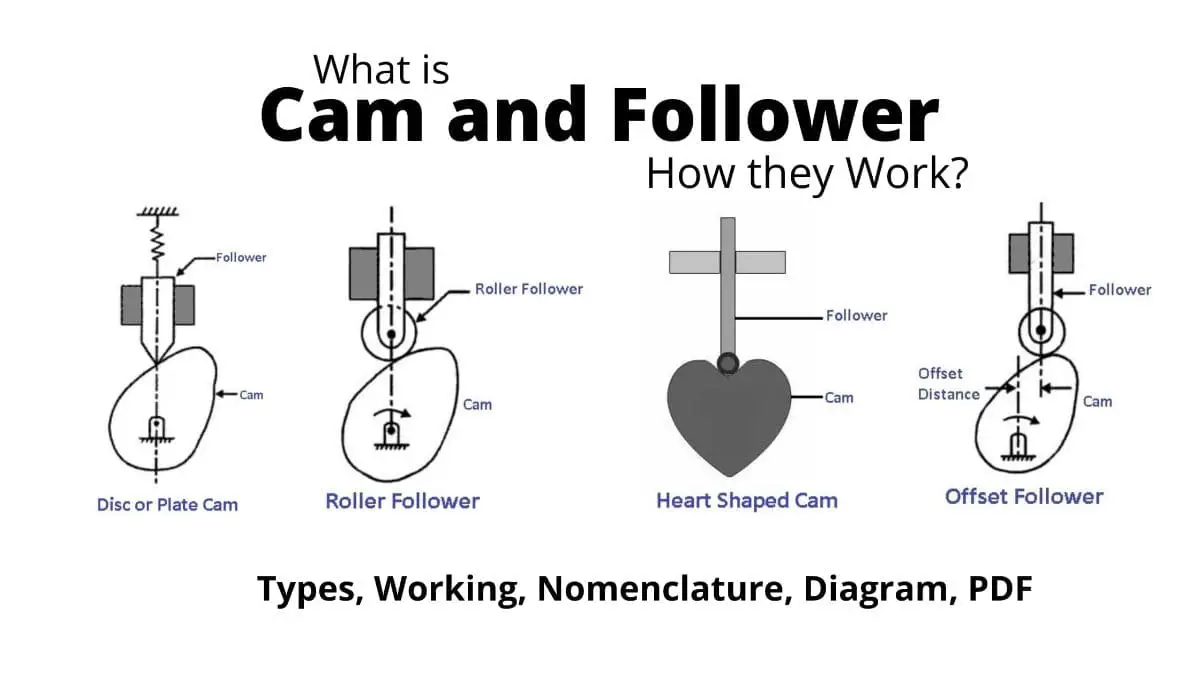CAM And Follower: Applications and Types
General
If your curiosity has led you here in search of information on the various implementations of Computer-Aided Manufacturing and its adherents, you have arrived at the correct place. CAM and followers are two critical components of complex mechanical systems and can be used for various purposes in industry.
CAMs and followers are essential components facilitating motion transfer from one part of a system to another. These mechanisms allow engineers to control the movement of a follower along a predetermined path by selecting and arranging a CAM correctly. Understanding the different types of CAMs and followers and their applications in various industries is crucial for developing efficient and effective systems.
Different Types of Cams and Followers
Using cams and followers gives you the flexibility to work with various applications. Different types of cams and followers are available, each designed for a specific purpose.
Let’s take a look at the different types:
- Oscillating or Reciprocating Cam
- Rotating Cam
- Profile Cam
- Radial Follower
- Vee Follower
Applications of CAM and Follower
You’ve probably heard of CAM and Follower being used in several applications since they’re incredibly versatile and reliable. This can range from controlling hazardous tasks to producing highly accurate components, even when the geometry is complex.
- Automation
- Parts with Complex Geometry
For these kinds of applications where precision is key, CAM and Follower offer unparalleled accuracy and reliability:
- Suitable for producing intricate shapes or parts with complex geometry
- Easy to reproduce results every time
- Highly durable as it’s made from robust materials like steel or hardened plastic
- Longer working life due to fewer moving parts compared to gear mechanisms
Benefits of Using CAM and Follower
What makes CAM and Follower such a popular choice for industrial applications? Well, they provide a lot of benefits, such as:
- Increased Accuracy and Efficiency
- Reduced Cost
- Simple Operation
Challenges With Implementing CAM and Follower
Though CAM and follower systems are incredibly versatile, they present particular challenges for successful implementation. These include the need for precise alignment and the difficulty of achieving proper lubrication due to the gap between components.
- Alignment
- Lubrication
Tips for Choosing the Right CAM and Follower
Making a great choice of CAM and Follower for your project can be challenging – here are a few pointers.
- Choose the Right Type
- Consider the Load Requirements
- Check Out the Materials
- Get Help From Professionals
Conclusion
In conclusion, CAM and follower mechanisms are vital components in the field of engineering, with numerous applications across various industries. These mechanisms enable engineers to control the movement of a follower along a desired path, facilitating the transfer of motion between different parts of a system. The types of CAMs and followers, such as disk cams, translating cams, and oscillating cams, each have specific advantages and limitations that make them suitable for diverse applications. Whether you are a novice or experienced in working with CAM and follower mechanisms, understanding their various applications and types is crucial for developing efficient and effective engineering systems. This article has provided valuable insights into the fundamentals of CAM and follower systems, which will undoubtedly be helpful for anyone interested in this field.





